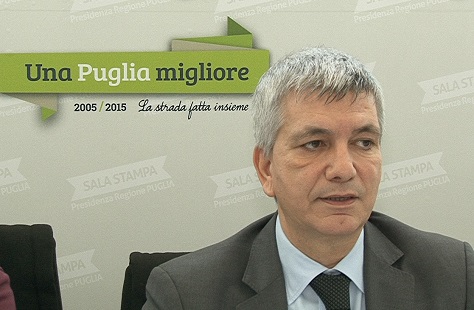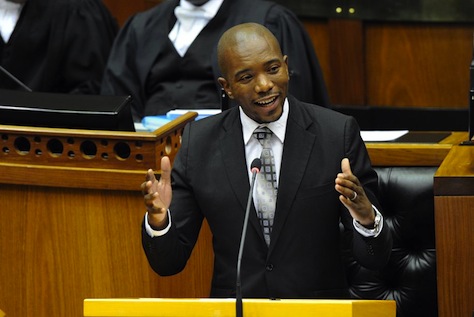Nichi Vendola, the openly gay, openly socialist president of Puglia, the southeastern Italian region, was once the new face of the Italian left — and was regarded as a potential prime minister by fawning profiles in the global media in 2010 and 2011.![]()
![]()
That praise came with good reason.
Vendola (pictured above), in the waning days of former prime minister Silvio Berlusconi’s domination of Italian politics, was the anti-Berlusconi. In a conservative region like Puglia, where Catholicism is still a strong force, Puglia became an unlikely leader.
This week, however, Vendola announced that while he would always be a militante of the left, he will step aside as the leader of his democratic socialist party, Sinistra Ecologia Libertà (SEL, Left Ecology Freedom), when he leaves office in Puglia later this year. Italy will hold regional elections in seven regions, including Puglia, on May 31. In recent days, Vendola has spoken about marrying his longtime partner, speculating about fatherhood.
There’s one major reason, among many, that Vendola is headed for retirement instead of to Rome.
It’s the ascendance of Italian prime minister Matteo Renzi, the former Florence mayor who won the leadership of the center-right Partito Democratico (PD, Democratic Party) in November 2013 and who wrested the premiership in February 2014 from his technocratic PD colleague Enrico Letta. In one sense, Renzi’s rise has been great news for the Italian left. Renzi’s youthful image and reform-minded approach to government has positioned the Democratic Party as the most dominant centrist force since the fall of the old Christian Democratic Party in the early 1990s.
While that’s been wonderful for moderates, plenty of die-hard leftists are not thrilled with Renzi, especially among the labor unions that have traditionally controlled the political left. For Vendola, an avowed communist, Renzi’s dominance will almost certainly close the door to any further ambitions for Vendola. Despite his widespread popularity in Puglia, where he won two consecutive elections, Vendola failed to win much more than 3% of the vote nationally in the 2013 general election. Though SEL is still polling between 3% and 5% in national polls, it’s difficult to see much of a future for the party without Vendola, whose star quality and charisma propelled it as a wary electoral partner for the Democratic Party, even if Vendola has increasingly distanced himself from Renzi over the past two years. With Vendola’s retirement and with the 2008 collapse of the successor to Italy’s Communist Party, Partito della Rifondazione Comunista (PRC, Communist Refoundation Party), it will be difficult to find any bona-fide communists in the homeland of Gramsci. Continue reading Exit Vendola, stage left, as Puglia’s regional president


